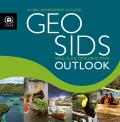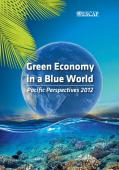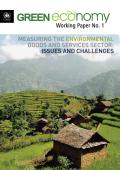
This report examines the diverse realities of Small Island Developing States (SIDS) through an integrated approach. While SIDS have bountiful supplies of renewable resources and unique cultural assets, they often face daunting challenges resulting from isolation and remoteness coupled with climate change, natural disasters, and out-migration. Furthermore, global financial shocks and increasing fuel and food prices are threatening core economic sectors such as tourism.
Built on combinations of realistic outlooks, this report develops an ensemble of four island-centric futures: the blue-green economy; technology leapfrogging; priority to island community and culture; and reconnecting with nature, to help individual states consider policy choices that best respond to their needs. This report shows that there is much that SIDS can do proactively to anticipate environmental problems and their economic consequences or even avoid them through innovative planning and action.


As an increasing number of countries adopt green economy strategies, there is a need to support them in measuring the magnitude of this new economy. This papers aims to guide them in this discussion. An Environmental Goods and Services Sector (EGSS) framework is a vital instrument for facilitating the greening of the economy, as it encompasses the two priority areas for green economy indicator development, namely the greening of conventional economic activities and the growing share of green or environment-related sectors.
This assessment report presents an overview of the energy access situation in the Asia-Pacific region, including prevalent policies and programmes to address them, with the view to identify common challenges that could be addressed through regional cooperation.
Advancing Sustainable Energy was prepared for the occasion of the Asian and Pacific Energy Forum (APEF) as an up-to-date catalogue of UN-Energy Asia-Pacific - its members, case studies and an assessment of member organizations' perspectives on enhanced energy security. ESCAP is the secretariat for UN-Energy Asia-Pacific, a part of the global coordination group UN-Energy. 10 members participated in the questionnaire to gather information for this publication. Stakeholders, especially in member States, can read this booklet to get the most comprehensive one-stop understanding of the vision, strategy and activities of ADB, ESCAP, FAO, UNCCD, UNCDF, UNDP, UNEP, UN-Habitat, UNIDO and World Bank on energy in the Asia-Pacific Region. This product aims to raise awareness and coordination, as well as inspire ideas for improving and initiating partnerships between countries, the United Nations and all development partners.
